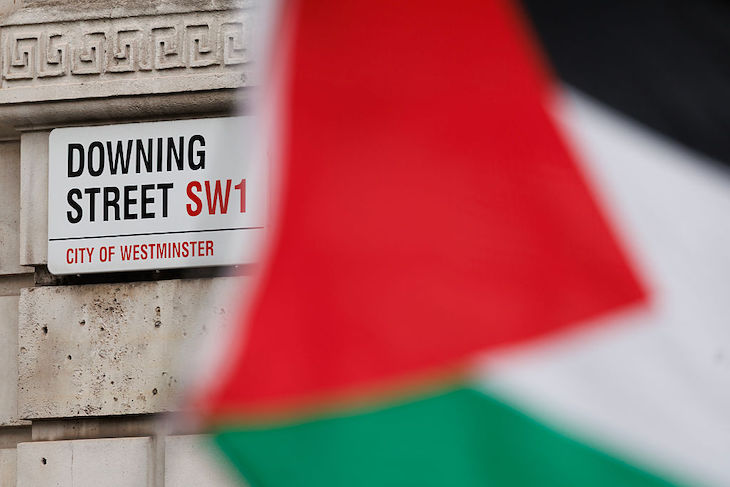The pound is starting to slide. Gold is punching through record highs, and long-term gilt yields are hitting levels that have not been seen in thirty years. It is not a Liz Truss style crisis, at least not yet, although it is worth noting that the price the government has to pay to borrow money is way above the levels it reached when the former prime minister ‘crashed’ the economy. But it is starting to become painfully apparent that the Labour government is rapidly losing the confidence of the financial markets.
It is yet another nervous week for the economy. The yield on 30-year gilts, the best long-term measure of the solvency of the British state, rose yet again on Tuesday morning, hitting 5.68 per cent, its highest level in 27 years.
The 10-year yield is not exactly looking very healthy either, hitting 4.79 per cent, up from 3.7 per cent a year ago. At the same time, the price of gold is soaring, reaching $3,508 in trading yesterday, an all-time high. Both those figures matter. As gilt yields rise, the interest that the Chancellor has to pay on the UK's vast outstanding debts keeps on rising. The UK was already forecast by the Office for Budget Responsibility to spend £105 billion in interest on its outstanding debts this year, or £2,837 per income tax payer. That total will inevitably rise significantly as gilt yields keep climbing. Likewise, the surging gold price is the most serious indicator yet that investors no longer trust debt addicted governments. Instead, they are putting their money into a traditional safe haven against financial turbulence. It's hardly a positive sign.
Add it up, and it is clear the Labour government is losing the confidence of the markets. True, it is not simply a UK issue. Yields on government debt are rising right across the developed world, with France and, indeed, the United States in just as much trouble. But that is hardly reassuring. If any country is going to be targeted by the bond markets, then the UK is surely the perfect candidate. It is large enough to matter, but not so large that its central bank will be able to mercilessly punish any speculators who take it on (as the Federal Reserve, and to a lesser extent the European Central Bank both can). If the market panics, the UK will be right at the centre of the storm.
The Starmer administration is starting to look acutely vulnerable. Its growth agenda has stalled, borrowing is running out of control, and yet more tax rises are looming. Its hapless Chancellor Rachel Reeves appears hopelessly out of her depth, losing key staff, and with the Treasury leaking increasingly deranged ideas for tax rises on a daily basis.
The UK has to borrow record amounts of money to stay solvent, and much of it comes from global markets. If confidence evaporates, it will find itself facing a financial crisis very soon – and it may already be too late to stop it.







Comments